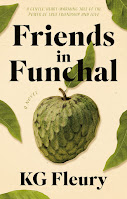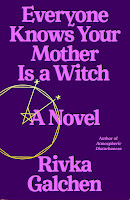Thief of Dreams by Mary Balogh is a re-release of one of her earlier Georgian Romances. It has the usual deep dive into emotional angst for the heroine and hero and also has a number of steamy sex scenes.
At twenty-one, the orphaned Cassandra Havelock reaches her majority and inherits the unentailed family estate and the title of Countess, unusual as that is for a woman. She now has an independent fortune and no need or desire to marry. Or so she thinks. Her well-meaning but incredibly patronizing family are certain she needs a husband to take care of her and the property. Her step-cousin offers himself, not out of greed, but because he cares about her and thinks it’s the best decision. The family agrees. Cassandra does not. She insists she intends to run the estate herself.
However, a stranger, Nigel Wetherby, Viscount Wroxley, appears at her birthday party uninvited. No one has any idea who he is, but he introduces himself as a friend of Cassandra’s father, and that’s enough for her. She asserts her newfound authority and insists he not only stay for the party but stay in her home and visit a while. Nigel is handsome and excessively charming, but also brooding – although only the reader sees him brood. He has a secret. He is the true owner of the estate, not Cassandra. But because he doesn’t want to hurt her, he has decided to woo and marry her rather than cast her out. He’s thrilled to find she is beautiful, because it will make marrying her more pleasant, and thrilled that she’s so innocent and trusting because he knows that winning her will be easy. He regrets that she will eventually be hurt, but since it’s unavoidable, he presses on.
She falls for him, according to his plan. He falls for her, too, which is not part of his plan. And then, his secret comes out. Cassandra’s heart and her trust are broken. Now they are locked in an unhappy marriage.
They have to find their way back to one another.
As the novel starts, Cassandra’s gullibility and childlike wonder are rather too treacly. She insists she doesn’t want to wed, but falls for the first handsome man to cross her path, trusting him completely for no reason whatsoever. Nigel is also a bit unlikable, since he is clearly nursing a grudge against Cassandra’s father and lying to everyone about his intentions.
So, it’s a heavy lift to get past the initial dislike/distrust of the protagonists. But then, once they are both hooked, and the secret comes out, and they have to work through the consequences, they become much more sympathetic. Cassandra grows up quickly and Nigel has to let the wall he built around himself crumble.
As always, Mary Balogh’s characters will find a way to pull at your heartstrings and make you root for their HEA.




















